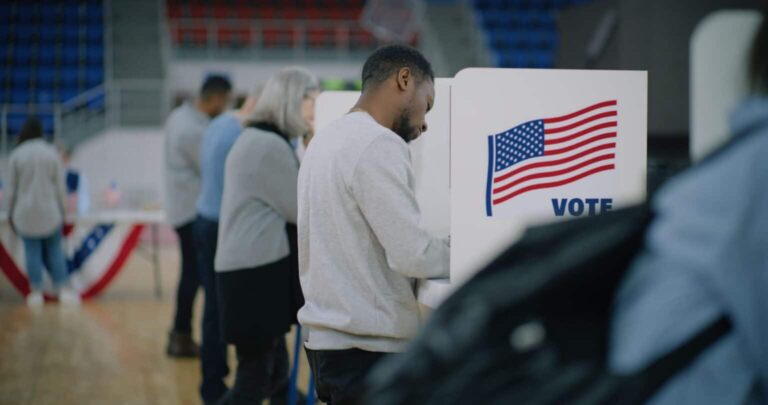Economics enthusiasts, have you ever thought about how the U.S. presidential election might affect your wallet, even if you’re living in South Africa? Well, buckle up, because we’re about to dive into this fascinating topic. The policies of the U.S. president can send ripples across the global economy, and South Africa, along with other emerging markets, often feels these waves quite strongly. Let’s explore how the potential presidencies of Trump or Harris could shake things up for South Africa and the wider world of emerging markets.
Trump’s Approach: Short-Term Gains vs. Long-Term Uncertainty
Remember when Trump was in office before? His love for low interest rates could potentially create some quick wins for emerging markets like South Africa. Why? Well, when U.S. interest rates are low, investors often look elsewhere for better returns, and emerging markets can seem pretty attractive.
But here’s the catch – Trump’s unpredictable nature could also lead to sudden policy changes, making the South African Rand go on a bit of a roller coaster ride. One day it’s up, the next it’s down – not exactly great for long-term planning.
Harris’s Approach: Stability for the Long Haul
Now, let’s talk about Harris. Her approach might not give us those exciting quick gains, but it could create a more stable environment in the long run. This stability could mean less dramatic swings for the Rand, which might help businesses and investors make more confident decisions.
Trade Policies: Protectionism vs. Multilateralism
Trump’s “America First” policy could mean trouble for South African exports. Imagine if he slapped tariffs on goods from South Africa – suddenly, our products might become more expensive and less competitive in the U.S. market. That could hurt industries that rely heavily on exports to the U.S.
Harris’s Multilateral Approach
On the flip side, Harris is more likely to play nice with other countries. This could mean stronger trade ties and fewer barriers for South African exports. Maybe we’d see more South African wine on U.S. shelves or more of our fruits in U.S. supermarkets.
Monetary Policy and Interest Rates
Trump isn’t shy about telling the Federal Reserve what to do. If he pushes for lower interest rates, it could lead to more money flowing into South Africa as investors search for better returns. But remember that roller coaster we talked about earlier? Yeah, that could happen here too.
Harris’s Hands-Off Approach
Harris would probably let the Fed do its thing without much interference. This might lead to more stable interest rates, which could help keep the Rand steadier. It’s like choosing between an exciting but unpredictable relationship and a stable, reliable one – both have their pros and cons!
Foreign Relations and Potential Sanctions
Trump’s tough stance on foreign policy could lead to sanctions on some of South Africa’s trading partners. This might force South Africa to rethink some of its trade relationships, which could be a bit of a headache.
Harris’s Diplomatic Approach
Harris would likely take a more diplomatic route. This could help South Africa maintain its current trade relationships and maybe even strengthen its position as a key partner in Africa. It’s like having a friend who helps you network versus one who might accidentally offend your other friends at a party.
Environmental and Climate Policies
Harris is big on fighting climate change. This could push South Africa to speed up its transition from coal to renewable energy. It might be tough in the short term for our coal industry, but it could open up new opportunities in green tech.
Trump’s Fossil Fuel Support
Trump’s support for fossil fuels might keep oil prices stable, which could be good news for South African consumers. But it might also put us at odds with countries pushing for greener policies. It’s a bit like choosing between cheaper gas now or a cleaner environment for our kids.
Commodities and Resource Exports
Both candidates’ policies could affect global demand for commodities that are super important to South Africa’s economy. Think platinum, coal, and iron ore. Harris’s green policies might boost demand for platinum (used in catalytic converters) but hurt coal exports. Trump’s policies might keep demand for these resources more stable.
Investment Flows and Investor Sentiment
Trump’s policies can be a bit like a box of chocolates – you never know what you’re gonna get. This unpredictability could make some investors nervous about putting their money in emerging markets like South Africa.
Harris’s Stability Appeal
Harris’s more predictable approach might make investors feel more comfortable. This could be especially good for industries focused on renewable energy and sustainability in South Africa.
Outlook for South Africa and Emerging Markets
So, there you have it, folks! The U.S. election isn’t just about red states and blue states – it’s about how the whole world does business. For South Africa and other emerging markets, a lot is riding on who sits in the Oval Office.
Whether it’s Trump’s potential for short-term gains but long-term uncertainty, or Harris’s steady approach that might lead to slower but more stable growth, one thing’s for sure – we’re in for an interesting ride. The best we can do is stay informed, be prepared, and maybe keep a close eye on that Rand-to-Dollar exchange rate!
Remember, in the world of global economics, we’re all connected. So next time you hear about the U.S. election, think about how it might affect your wallet – even from halfway across the world. Who knew politics could be economically exciting to that level?

